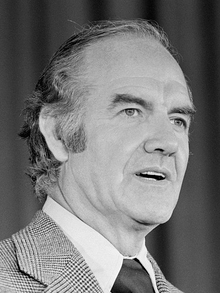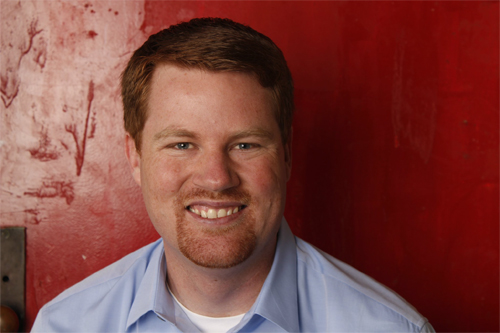“A Piece of My Mind”
February 2013 Newsletter from Donald Shoemaker
Advancing Christian Faith and Values,
Defending Religious Liberty for All,
Supporting Civility and the Common Good
through Preaching, Teaching, Writing, Activism and
Reasoned Conversations
www.donaldshoemakerministries.com
Bible Insight: “Contemporary Worship” – “Contemporary”, yes, but is it “Worship”?
“God is spirit, and his worshipers must worship in spirit and in truth.” (John 4:24, a text that, among other things, should make us cautious about external show in worship)
1 Corinthians 14:26 is a foundational scripture for worship: “When you come together [‘sunerchomai’ – a technical term for the church gathering), …all [including singing] must be done for the strengthening of the church.”
“Let the word of Christ dwell in you richly, in all wisdom teaching and admonishing each other with psalms, hymns and spiritual songs…” (Colossians 3:16—my rather literal translation of it)
First, let’s agree and admit: “God’s worship tastes are broader than yours or mine.” So what I like or what I prefer is not the issue. The issues are:
• Is our worship acceptable to God—the kind of worship he seeks?
• Is it spiritually strengthening to the congregation?
• If the occasion is evangelistic, is the music the best for the occasion?
• Does it make the church truly an engaged, worshipping body?
• Does it fulfill biblical teaching and commands? And (in matters not addressed in the Bible) does it fulfill biblical principles?
Here are five problems I have with some of the “contemporary worship” I observe (and I do benefit from much of it):
1. Platform Performance and a Spectator Audience rather than a Participating Congregation led by the Worship Team
Does the team in front truly lead the people in worshipping God in spirit and in truth (John 4:24)? Or does it perform before them? (Does the show go right on even if watchers are not participating?)
A 20-something couple attended a contemporary worship service and found the audience standing for a long song time but most were noticeably not singing. Worse, this couple had taken a young, non-Christian friend to this service, and she was quite puzzled. “Why do they stand so long? Why aren’t they singing?” (The couple wrote me about their experience.)
This may be “contemporary”, but “worship” it ain’t! Likewise, “leading worship” is more than coaxing the audience to clap their hands, etc., along the lines of some older worship styles. Good worship leading is an art. It creates a “symbiotic” situation, where leaders and congregation are ushered freely and together into the spirituality of the worship experience.
2. Use of Technology and Special Effects that attract attention to themselves rather than to Jesus (or even hinder attraction to Jesus)
I tried to worship last year at a gathering that displayed, in my opinion, many distracting special effects—especially some little spotlight nuisances that sent their beams wandering through the audience during songs. How does this build the spirituality of the song time? What are we trying to prove?
Technology (lighting, amplification, projections, special effects) is “neutral”, neither commanded nor forbidden in the Bible. The use of technology therefore must be judged by its positive or negative effect.
The reformer John Calvin’s advice is helpful when considering things added to the worship of God that are not specified in the Bible. He speaks against “useless elegance and fruitless extravagance” and favors a decorum that fits “the sacred mysteries” and is “appropriate adornment” for the exercise of devotion. “Ceremonies…ought to lead us straight to Christ” (Institutes of the Christian Religion, Book 4, Chapter 10, Section 29). So we ask, “Does this particular use of technology lead us straight to Christ or not? Or does it even distract us from Christ?”
3. Selection of Songs and Style that doesn’t fit the context (the people who are there and the purpose of the gathering)
As a pastor for 44 years, I’ve learned the art of accepting people “where they are” and leading them from there to “where they ought to be”. In music, this includes broadening their tastes and appreciation, and doing so with a sensitive spirit.
This requires “gradualism”, building upon the ground they stand on, slowly expanding their grasp of music that will then build them up spiritually. You know how a cat acts when you take him suddenly from familiar surroundings to a strange place? You better be wearing gloves! We wouldn’t expect old-time gospel songs to be effective at a gathering of unchurched youth. Likewise, if a praise team is before an older crowd or a generationally mixed crowd and hits them with a style that narrowly fits a particular youthful stratum, then broader musical appreciation and spiritual growth are aborted.
And remember, the elderly folk aren’t into standing for 20+ minutes!
4. “Sloppy Agape” and the “Slurpization of God”
Some contemporary songs convey an erotic (romantic, but not in the negative sense of “eroticism”) rather than an agapic view of love (1 Corinthians 13). The agape love of God reaches down to us in our distress and does what is needed (John 3:16). It motivates us to agapic love for others (1 John 4:11). It’s not about getting the feeling that God has feelings of love for us.
I attended a church’s song service last year where the lyrics of one popular song said Heaven will come “like a sloppy wet kiss”! No wonder some talk of men (males) not caring for modern worship. Women either.
All worship leaders should study the transcendence, holiness and majesty of God and ponder their practical application to worship.
5. Weak or Wrong Teaching in the Song Lyrics
Singing is a time to teach and admonish with the truth (Colossians 3:16).
I’m delighted to see more contemporary songs focusing on our social duties as Christians. This has been a blind spot in contemporary music. “God of The City” is a top example of this development (O that it were more singable!).
But some songs go beyond this with themes and lyrics that are “post-millennial” (Jesus will return after the church establishes his kingdom on earth). Few Christians I know really believe this, but the songs they sometimes sing convey it anyhow. (Let it be said that the old “gospel songs” were sometimes doctrinally weak or wrong as well.)
I close with the powerful words of the relevant song, “Sing Praise to God Who Reigns Above” by Johann J. Schutz (1675):
Thus all my toilsome way along I sing aloud Thy praises,
That men may hear the grateful song my voice unwearied raises.
Be joyful in the Lord, my heart. Both soul and body bear your part.
To God all praise and glory!
Religious Liberty Vigilance
“Congress shall make no law respecting an establishment of religion,
or prohibiting the free exercise thereof…”
– 1st Amendment (Our “First Freedom” in the Bill of Rights)
PROCLAMATION
honoring
Religious Freedom Day 2013
WHEREAS our nation’s founders recognized the importance of religious freedom and secured this liberty in the words of the First Amendment, declaring that “Congress shall make no law respecting an establishment of religion, or prohibiting the free exercise thereof;” and
WHEREAS the Virginia Statute for Religious Freedom, our country’s first legal safeguard for religious liberty, was adopted on January 16, 1786, and each year since 1994, the President of the United States has issued a proclamation on the importance of religious liberty recognizing, “our government did not create this liberty, but it cannot be too vigilant in securing its blessings;” and
WHEREAS the free exercise of religion has undergirded the social efforts of many Americans, notably Dr. Martin Luther King, Jr., whose birthday on January 15th we commemorate each year; and
WHEREAS the United Nation’s Universal Declaration of Human Rights states, “Everyone has the right to freedom of thought, conscience and religion” including the right “to manifest his religion or belief in teaching, practice, worship and observance”; and
WHEREAS our country has embraced a tradition of religious liberty that has prevented religious domination, conflict and persecution and nurtured an environment where religion has flourished and where people have been left free to choose which faith they shall follow or none at all;
NOW, THEREFORE, I, Bob Foster, Mayor of Long Beach along with Gerrie Schipske, Councilwoman of the 5th District, on behalf of the City of Long Beach do hereby declare January 16, 2013 to be “Religious Freedom Day” in our community. We encourage city government, community groups, schools and places of worship to reaffirm their devotion to the principles of religious freedom and educate and reflect on the importance of religious liberty so it may continue secure as part of our nation’s fabric. We also encourage citizens and government to be mindful of the principles of religious liberty in their decisions, attitudes, and actions.
Dated: January 16, 2013
[Adapted from a text prepared by Donald Shoemaker]
Upcoming Ministries
February 7 – Participate in a presentation on professional responses to the Salon Meritage incident (Oct. 12, 2011) for the Chaplain Corp of the Los Angeles Police Department
February 13 – Lead Ash Wednesday service of prayer, song, message and Communion at Grace Community Church of Seal Beach (7:00 p.m.)
Good News from Grace
www.gracesealbeach.org
Steve Williams was installed as the new senior pastor of Grace Community Church of Seal Beach on January 13.
An Ash Wednesday service, devoted to song, repentant prayer, and Communion, will be held at the church February 13 at 7:00 p.m.
Message of the Month – “Roe v. Wade at 40”
[slightly expanded from the Seal Beach/Los Alamitos Patch, Jan. 22, 2013]
“You created my inmost being; you knit me together in my mother’s womb” (Psalm 139:13). For this scripture and other reasons I joined the “Right to Life” movement on January 22, 1973, the day “Roe v. Wade” was decided by the U.S. Supreme Court. As Roe v. Wade reaches its 40-year mark, I want to make three observations about this landmark decision.
First, the court’s Roe v. Wade decision was far more expansive than necessary to decide the case before it. It gave unlimited right to an abortion during the first trimester of pregnancy and allowed limits during the second trimester only as were “reasonably related to maternal health”. For the third trimester, the court noted “the potentiality of human life” (the unborn) and said states could regulate or ban abortion at this stage except if maternal “health” (broadly understood) was at risk.
Roe v. Wade grounded abortion rights on a right to privacy that it found in the “penumbra” (we might say, “surrounding glow”) of the Constitution rather than in the words of the Constitution itself.
Thus the activist court “legislated” (made law) rather than “judged” law. Justice Rehnquist in dissent reminded the court it should never “formulate a rule of constitutional law broader than is required by the precise facts to which it is to be applied” (www.law.cornell.edu/supct/html/historics/USSC_CR_0410_0113_ZD.html).
Second, public opinion has never been in accord with Roe v. Wade and is even less so now than in 1973. It also should fairly be said that public opinion doesn’t support the “Right to Life” side in all details either. Here are some samples of recent Gallup opinion polls (www.gallup.com/poll/1576/abortion.aspx).
• Today 50% say they are “pro-life” compared to 33% in 1996. In 1996, 56% claimed to be “pro-choice” and today that number is 41%.
• 71% support requiring parental notification if the woman is under 18.
• 62% support legal abortion during the first three months of pregnancy, but 71% oppose it during second three months and 86% in the last three months.
• Still, 52% do not want to see the U.S. Supreme Court overturn Roe v. Wade.
If we survey all the questions in the polls, we see most Americans are against most abortions and do not favor either an outright ban on abortions nor unqualified access to abortions.
Third, a new wrinkle has been added by the “contraception mandate” in what is popularly called “Obamacare”. Now the issue of religious liberty (the “free exercise” of religion guaranteed in the First Amendment) has been raised. In other words, the debate moves from what people should be free to do to what people and institutions with religion-based convictions can be forced to do.
“Obamacare” provides a very narrow and inadequate exemption for “houses of worship” but plans to force religious institutions (such as Christian colleges) to cover free access to contraception including, as feared by the U.S. Conference of Catholic Bishops, “drugs which can attack a developing unborn child before and after implantation in the mother’s womb” (www.usccb.org/news/2011/11-154.cfm). This major debate will certainly go to the Supreme Court.
The current administration is no friend of religious liberty in my opinion. Ironically, President Obama’s 2013 “Religious Freedom Day” proclamation said, “As we observe [on January 16] Religious Freedom Day…let us honor it by forever upholding our right to exercise our beliefs free from prejudice or persecution” (www.whitehouse.gov/the-press-office/2013/01/16/presidential-proclamation-religious-freedom-day).
Yes, Mr. President, let’s do that even if exercising religious liberty conflicts with your plans for expansive government control in matters previously thought to be better left to the consciences of individuals and the convictions of religious institutions.
Donald P. Shoemaker is Pastor Emeritus of Grace Community Church of Seal Beach. In 1980 he served as General Chairman of the National Right to Life Convention at the Anaheim Convention Center.






